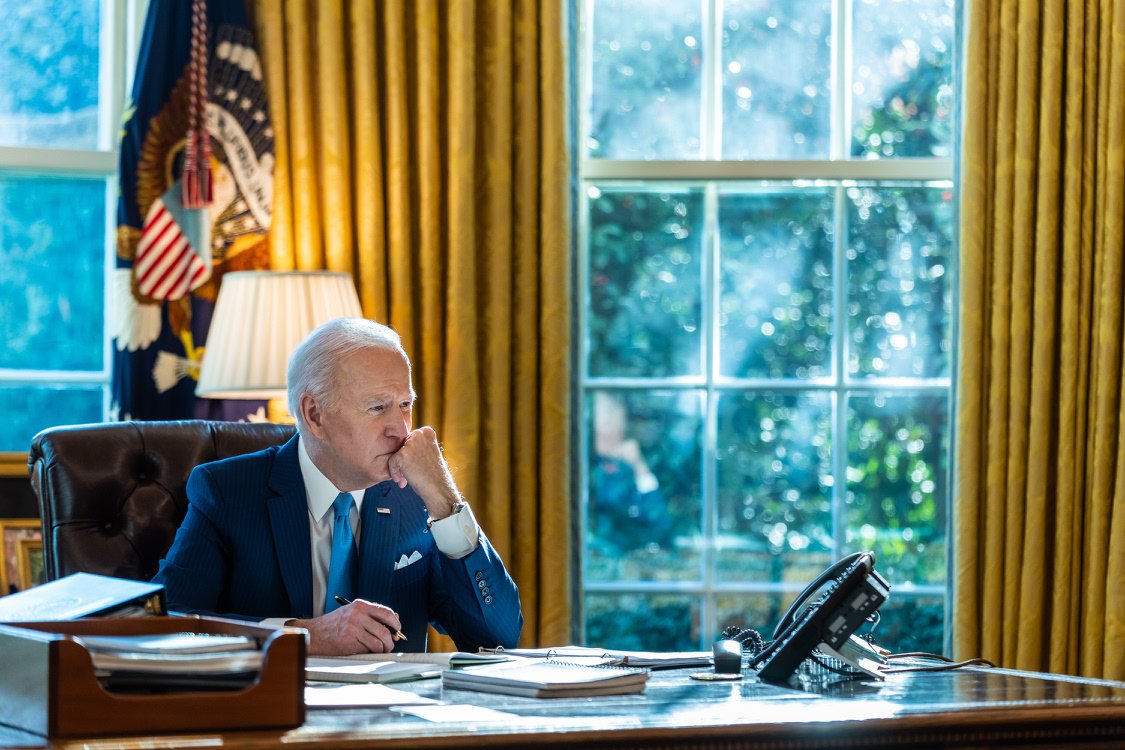Views expressed in opinion columns are the author’s own.
After Alexei Navalny’s death, President Joe Biden seems to only be able to push routine measures that don’t really punish Russian President Vladimir Putin. Unlike the real threat Navalny posed to Putin, Biden can only urge Congress to pass another Ukraine aid bill and promise to impose more sanctions against Moscow.
If Biden wants to keep these dictators in check, he should look to people like Navalny who have been working toward that for years. Political dissidents know exactly how to inspire changes in their countries that align with Biden’s own populist, pro-worker values. The president should publicly support them.
Protests, strikes, petitions and other acts of collective action by downtrodden people against an oppressive authority have proven effective in driving change domestically and abroad. Just as unions keep the suits on their toes, dissidents like Navalny are dangerous for autocrats.
These activists challenge authority by pushing the boundaries of free expression in repressive societies while inspiring others to do the same. Protests can be much more damaging than sanctions.
With two major foreign conflicts demanding Biden’s input regularly, he has the opportunity to put his own personal spin on America’s foreign policy — his own doctrine. Bush’s Doctrine was to make no distinction between terrorists and those who harbor them, Trump’s was simply “America First,” and much of Biden’s has been devoted to undoing Trump’s.
Biden is still figuring out how to deal with dictators like Putin. Should he even be calling them dictators, as he did to China’s President Xi Jinping in November? Should he be meeting with them at all?
His predecessor alienated NATO allies, so Biden’s policy has been defined by his collaborative efforts. Besides his relative toughness on China, Biden has not yet fully forged his own distinct, consistent foreign policy directives.
Now, American allies and voters need a clear answer as to what the president wants from his friends and enemies alike. For Biden, a strategy that in some way focuses on empowering dissidents in nondemocratic nations would advance American interests and help his candidacy come November.
Political dissidents often challenge authoritarianism in their country or seek to expand democratic institutions. At times, their goals align with America’s — free expression, free elections and free markets. Russia is not the only country with a large network of dissidents. Large-scale protests have also recently occurred in China and Iran, the latter of which is crucial for Biden.
Iran’s proxy groups in the Middle East constantly undo American initiatives, as New York Times foreign policy columnist Thomas Friedman explained last month when discussing Biden’s strategy in the region. Offering support for Iranians repressed by the country’s current regime could prove more useful than direct military action in dissuading Iran.
Supporting political dissidents abroad fits Biden’s electoral playbook, but so does supporting economic dissidents at home. Biden has branded himself as the most pro-union president ever. This has been a winning strategy, as a record 61 percent of likely voters now say that unions help rather than harm the United States economy.
Underlying both support of unions and support of dissidents is a “stick it to the man” attitude that paints Biden as a regular Joe who fights for freedom at home and abroad. This persona could win him a second term.
His likely opponent, Donald Trump, also professed support for unions but did not prove it in his term as president. During the United Auto Workers union strike last year, he attacked the union’s leaders and told its members to stop paying dues.
Trump’s questionable track record with unions could explain why he lost much of the rust belt to Biden in 2020 after winning it four years prior. With those states again being a tossup leaning slightly towards Trump, Biden needs an all-out push for the little guy.
If voters see Biden challenging oppressive authorities in their workplaces and across the world, then they are likely to favor him as a person of the people. Biden’s support of unions won him enough of the blue-collar vote in 2020, but his support of dissidents will win him the world.
It is dissidents — like Navalny and his allies in Russia — who make a much bigger impact in their respective countries than Biden ever could from a foreign country. The dissidents hear the cries of their people while their supposed allies shake hands with their oppressors. Biden will not topple any dictators, but he should support those who can.
As President Carter lamented during his visit to the University of Maryland in 1998, politicians don’t listen to the soldiers’ parents, who pray for peace. Biden was once that parent, and now he should do more than just listen.
Joey Barke is a junior government and politics and journalism major. He can be reached at joey@terpmail.umd.edu



